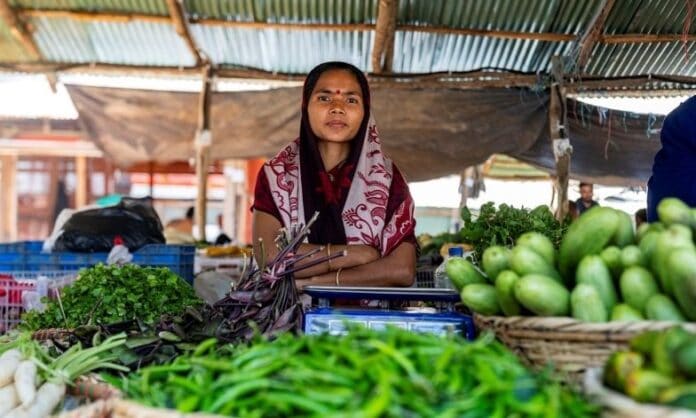On 3 November, the UN’s World Food Programme (WFP) – the winner of the 2020 Nobel Peace Prize – hosted an online Chef’s Table event. Arthur Potts-Dawson in the United Kingdom, a chef and WFP advocate, and Anahita Dhondy in India, also a chef, were joined by Richard Ragan, WFP’s representative to Bangladesh, and Brook duBois, the WFP’s Communications Consultant in Bangladesh.
The aim of this Chef’s Table event was to raise awareness of WFP’s #StopTheWaste initiative and to highlight the value of food and waste prevention methods. Participants were encouraged to cook along with Mr Potts-Dawson and Ms Dhondy as they each made a pickle live, Mr Potts-Dawson pickling apples and Ms Dhondy creating a tomato pickle. The event was timely, with the focus in November being on Zero Hunger one of the UN’s 17 Sustainable Development Goals. Around a third of the world’s food is wasted on average, aggravating severe food shortages in some parts of the globe. In order to achieve the Zero Hunger target by 2030, Mr Potts-Dawson highlighted how vital it is that humans “reduce and lessen the impact food is having on our planet on a daily basis.”
Despite the world’s high average food waste, in Bangladesh, only 5% of food is wasted, making the country a good global example of how to cut down food waste. Mr Ragan puts what he calls Bangladeshis’ “smart use of food” down to the country’s history of famine, in which 4 million people died in the 20th century alone. Recently Bangladesh has received over one million Rohingya refugees escaping religious persecution in Myanmar, a number that has put significant strain on a country that was already the most densely populated in the world.
As a result of its history and refugee intake, according to Mr Ragan, Bangladesh has learnt how to significantly reduce food waste and get the best out of food. As Mr Ragan says, “No one understands or values food better than a hungry person.”
WFP has also supported Bangladeshis in increasing their food security, having launched an emergency operation to meet the food and nutritional needs of the population since 1974, helping more than 155 million vulnerable people. Ms duBois showed the audience a video of a Bangladeshi food market in Cox’s Bazar, which WFP helped to set up. The video documented a stall run by a farmer called Poppy who, thanks to the food market, had been able to sell her produce thereby improving her family’s financial security.

The market’s proximity to Bangladesh’s refugee camps also meant that refugees bought food from the farmers there, giving them more choice over their diet rather than only relying on their rations. As Ms duBois pointed out, “farmers like Poppy are able to put fresh food into the homes of refugees.” One of the key products Poppy sold at the market – and one of the ways she got the most out of her produce – was pickles. Pickles’ preservative ability (pickled food doesn’t go off for years), and the fact that many vegetables and fruits can be pickled, makes them an effective way of reducing food waste. What’s more, Ms Dhondy and Mr Potts-Dawson showed during the event just how easy pickling food is, with both producing mouth-watering pickles using very simple methods in just under an hour.
With 40 million Bangladeshis still remaining food insecure – as well as millions of other people around the world – reducing our food waste is vital in helping the world reach the UN’s Zero Hunger target by 2030. As Secretary-General António Guterres stated, “In a world of plenty, it is a grave affront that hundreds of millions go to bed hungry each night.” To help prevent this, we must act to use and get more out of the food we buy and produce, and #StopTheWaste.




